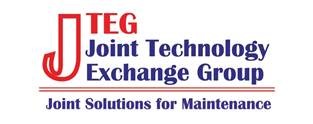Abstract
Corrosion costs the DoD over $20 billion annually and has a measurable and significant impact on system availability and directly causes, or is a factor in, many safety mishaps. The purpose of this forum is to exchange information on the structure and activities of the OSD and Military Department-level corrosion prevention and control (CPC) programs. Information regarding policy implementation, emerging technologies, and training opportunities will be presented. Additionally, projects focused on demonstrating and implementing new CPC technologies will be discussed as well as some of the challenges facing the maintenance community regarding CPC.
Agenda
1300-1309: Welcome – Mr. Greg Kilchenstein (OSD-MR) Presentation
1309-1310: Administrative Notes – Ms. Debbie Lilu (NCMS)
1310-1335: Corrosion Prevention Office (CPO) Overview – Mr. Robert Herron (OSD-MR) Presentation
1335-1400: Maintenance Availability Data Warehouse (MADW) – Use in Corrosion – Mr. Eric Herzberg (LMI)
1400-1425: USAF Corrosion Prevention and Control – Mr. Carl Perazzola and Mr. Jarquees Williams (AFSC) Presentation
1425-1450: “Systemic Corrosion Issues across Naval Aircraft” – Mr. Pete Sheridan (FRCSE Materials Lab) Presentation
1450-1500: Wrap-Up
Minutes
Event: On 28 January 2020, the Joint Technology Exchange Group (JTEG), in coordination with the National Center for Manufacturing Sciences (NCMS), hosted a virtual forum on “Corrosion Prevention and Control”.
Purpose: The purpose of this forum was to exchange information on the structure and activities of the OSD and Military Department-level corrosion prevention and control (CPC) programs. Information regarding policy implementation, emerging technologies, and training opportunities were presented. Additionally, projects focused on demonstrating and implementing new CPC technologies were discussed as well as some of the challenges facing the maintenance community regarding CPC.
Welcome: Ray Langlais (LMI) and Debbie Lilu (NCMS) welcomed everyone to the forum and thanked the presenters and all the listeners for their attendance. They also stated how important corrosion prevention and control are to improving efficiency, and effectiveness within the DoD maintenance community.
Administrative: This was an open forum. The presentations, along with questions and answers, were conducted through the Defense Collaboration Services (DCS) and Adobe Connect. A separate audio line was used. Approximately 55 participants from across DOD, industry, and academia joined in the forum.
Corrosion Prevention Office (CPO) Overview – Mr. Robert Herron (OSD-MR) provided an overview of the CPO beginning with a description of the CPO lines of effort to include developing policy, coordinating corrosion mitigation efforts in DoD, distributing information on CPC methods and products, reviewing MilDep CPC programs and funding levels, coordinating research and development, monitoring acquisition practices, and transitioning new corrosion prevention technologies. He mentioned there are opportunities to affect change in technologies in the areas of component improvements, new technologies, and transition of existing technologies. He concluded by describing the CPO immediate priorities: develop a new DoD Corrosion Strategy, draft a CPC IPT Charter, and revise the DoDI 5000.67, “Prevention and Mitigation of Corrosion on DoD Military Equipment and Infrastructure”, 31 August 2018.
Maintenance Availability Data Warehouse (MADW) – Use in Corrosion – Mr. Eric Herzberg (LMI) discussed MADW beginning with a naval aviation use case, LMI’s perspective on advanced analytics, and a description of the four elements of MADW, the authoritative data sources, sample records, top-down and bottom-up cost reconciliation, and an explanation of the data conversion process using the corrosion and NMC algorithms.
USAF Corrosion Prevention and Control – Mr. Carl Perazzola and Mr. Jarquees Williams (AFSC) discussed: (1) Consolidating AFI on ASIP and Air and Space Structural Equipment Management – the change should enhance the status of AFCPCO recommendations under the ASIP authority umbrella. (2) Promoting an OUSD Aviation WIPT to leverage resources, knowledge and technologies, and (3) Institutionalizing System Program Offices (SPO) visit. They then described the MAJCOM surveys 5 year frequency, assist and advisory purpose, and support for the AF Corrosion Control PE. That was followed by an explanation of aircraft specific surveys, hand-held laser technology applications, a discussion on non-chrome materials, predictive corrosion for CBM+, and the AFCPCO portal website and SharePoint site.
“NAVAIR Enterprise Approach to Corrosion” – Mr. Pete Sheridan (FRCSE Materials Lab) stated that the NAVAIR realignment is based on a mission aligned organization with a vision to be highly responsive and adaptive. He described the executive reliability control board (E-RCB) and its’ functions as the integrating, Flag-level component of the Naval Sustainment System (NSS) engineering reliability driven process, driving Readiness for Naval Aircraft platforms. He pointed out the huge impact that corrosion prevention has on readiness, and described the Naval Aviation Corrosion Enterprise Team (NACET) process flow. He followed up with a description of systemic corrosion issues to include corrosion on aircraft carrier flight decks, resource limitations at T/M/S level, and the varied approaches to corrosion prioritization and mitigation.
Q&A – A Q&A occurred after each briefer finished their presentation. Questions and answers will be posted on the JTEG website with these minutes.
Closing Comments: Ray Langlais thanked the presenters for their contributions and all the work being done to support corrosion prevention and control efforts within DoD sustainment. He suggested continuing the information exchange beyond the forum and the importance of collaboration within the DoD maintenance community.
Action Items:
- Work to get the briefing slides cleared for “public release”, and then post them on the JTEG website at https://jteg.ncms.org/ .
Next JTEG Meeting: The next scheduled JTEG virtual forum is 25 February 2020, 1:00 – 3:00 pm EST. The topic is “Advanced Wiring Inspection Capabilities”.
POC this action is Ray Langlais, rlanglais@lmi.org , (571) 633-8019
